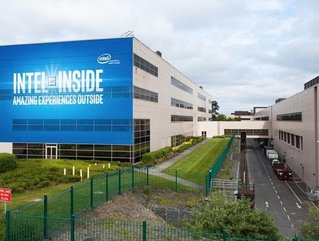Intel seeks extra $5.5bn to fund Euro chips manufacturing

Intel is seeking an additional €4bn-€5bn (US$4.4bn-$5.5bn) in subsidies from the German government to build a chip manufacturing plant in the country, reports Fortune.
Previously, Intel had struck a deal to build a plant in Magdeburg in north-east Germany, funded by €6.8bn ($7.2bn) in government subsidies.
However, the company postponed construction on that project at the end of 2022 because of unfavourable economic conditions.
“Disruption in the global economy has resulted in increased costs, from construction materials to energy,” Intel said in a statement at the time. “We appreciate the constructive dialogue with the [German] federal government to address the cost gap that exists with building in other locations and make this project globally competitive.”
Intel’s Euro chips move follows European Union (EU) policy to increase domestic semiconductor production in Europe the wake of prolonged and ongoing disruption to chip supplies.
European Chips Act paves way for Intel
In autumn 2022, the EU executive – the European Commission (EC) – reached a provisional agreement on the terms of the European Chips Act, which seeks to double the EU's market share in semiconductor development, manufacturing, and material supply chains, from 10 to 20% by 2030.
Millions of products from cars to washing machines and mobiles rely on microchips, also called semiconductors.
"Europe is too dependent on chips produced abroad, which became more evident during the COVID crisis," an EC's statement at the time declared.
The European Chips Act will bolster Europe's competitiveness and resilience, says the EC, by ensuring it has “the necessary tools, skills and technological capabilities to secure supply of semiconductors and to reduce dependencies”.
In the wake of this announcement, Intel unveiled a massive European expansion plan last year that at the time was worth €33bn. This includes a research centre in France and an expansion of an existing Intel chip plant in Ireland.
At the heart of Intel’s plans, though, was the Magdeburg chip production site.
Ukraine invasion hits Intel's Euro chips plans
However, Fortune reports that, since Russia’s invasion of Ukraine in early 2022, energy prices in Europe have skyrocketed, and inflation has seen construction and materials costs soar.
Fortune reports that the German Economic Ministry declined to comment on its discussions with Intel, but pointed to the EU’s goal of producing 20% of the world’s semiconductors by 2030.
“With this goal in mind, the federal government is prepared to support the semiconductor industry in Germany with several billion euros and to enable new factories to be set up,” the Ministry said in a statement. It added that any additional funding would need approval from the European Commission.






